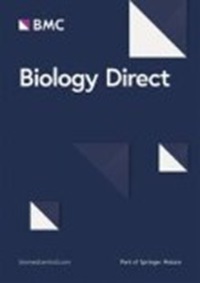Lactobacillus reuteri mitigates hepatic ischemia/reperfusion injury by modulating gut microbiota and metabolism through the Nrf2/HO-1 signaling
IF 5.7
2区 生物学
Q1 BIOLOGY
引用次数: 0
Abstract
This study seeks to investigate the impacts of Lactobacillus reuteri (L. reuteri) on hepatic ischemia-reperfusion (I/R) injury and uncover the mechanisms involved. Mice in the I/R groups were orally administered low and high doses of L.reuteri (L.reuteri-low and L. reuteri-hi; 1 × 1010 CFU/d and 1 × 1011 CFU/d), for 4 weeks prior to surgery. Following this, mice in the model group were treated with an Nrf2 inhibitor (ML-385), palmitoylcarnitine, or a combination of both. After treatment with L. reuteri, mice exhibited reduced levels of serum aminotransferase (ALT), aspartate aminotransferase (AST), and myeloperoxidase (MPO) activity, as well as a lower Suzuki score and apoptosis rate. L. reuteri effectively reversed the I/R-induced decrease in Bcl2 expression, and the significant increases in the levels of Bax, cleaved-Caspase3, p-p65/p65, p-IκB/IκB, p-p38/p38, p-JNK/JNK, and p-ERK/ERK. Furthermore, the administration of L. reuteri markedly reduced the inflammatory response and oxidative stress triggered by I/R. This treatment also facilitated the activation of the Nrf2/HO-1 pathway. L. reuteri effectively counteracted the decrease in levels of beneficial gut microbiota species (such as Blautia, Lachnospiraceae NK4A136, and Muribaculum) and metabolites (including palmitoylcarnitine) induced by I/R. Likewise, the introduction of exogenous palmitoylcarnitine demonstrated a beneficial impact in mitigating hepatic injury induced by I/R. However, when ML-385 was administered prior to palmitoylcarnitine treatment, the previously observed effects were reversed. L. reuteri exerts protective effects against I/R-induced hepatic injury, and its mechanism may be related to the promotion of probiotic enrichment, differential metabolite homeostasis, and the Nrf2/HO-1 pathway, laying the foundation for future clinical applications.通过 Nrf2/HO-1 信号调节肠道微生物群和新陈代谢,芦特氏乳杆菌可减轻肝缺血再灌注损伤
本研究旨在探究芦特氏乳杆菌(L. reuteri)对肝脏缺血再灌注(I/R)损伤的影响,并揭示其相关机制。I/R组小鼠在手术前口服低剂量和高剂量的L.reuteri(L.reuteri-low和L.reuteri-hi;1 × 1010 CFU/d和1 × 1011 CFU/d)4周。之后,模型组小鼠接受 Nrf2 抑制剂(ML-385)、棕榈酰肉碱或两者的组合治疗。使用 L. reuteri 治疗后,小鼠的血清转氨酶(ALT)、天门冬氨酸转氨酶(AST)和髓过氧化物酶(MPO)活性水平降低,铃木评分和细胞凋亡率降低。L. reuteri能有效逆转I/R诱导的Bcl2表达下降,以及Bax、裂解的Caspase3、p-p65/p65、p-IκB/IκB、p-p38/p38、p-JNK/JNK和p-ERK/ERK水平的显著升高。此外,服用 L. reuteri 还能显著减轻 I/R 引发的炎症反应和氧化应激。这种治疗还促进了 Nrf2/HO-1 通路的激活。L.reuteri能有效抵消I/R引起的有益肠道微生物群物种(如Blautia、Lachnospiraceae NK4A136和Muribaculum)和代谢产物(包括棕榈酰肉碱)水平的下降。同样,引入外源性棕榈酰肉碱对减轻 I/R 引起的肝损伤也有好处。然而,当在棕榈酰肉碱治疗之前服用 ML-385 时,之前观察到的效果被逆转。L.reuteri对I/R诱导的肝损伤具有保护作用,其机制可能与促进益生菌富集、差异代谢物平衡和Nrf2/HO-1通路有关,为未来的临床应用奠定了基础。
本文章由计算机程序翻译,如有差异,请以英文原文为准。
求助全文
约1分钟内获得全文
求助全文
来源期刊

Biology Direct
生物-生物学
CiteScore
6.40
自引率
10.90%
发文量
32
审稿时长
7 months
期刊介绍:
Biology Direct serves the life science research community as an open access, peer-reviewed online journal, providing authors and readers with an alternative to the traditional model of peer review. Biology Direct considers original research articles, hypotheses, comments, discovery notes and reviews in subject areas currently identified as those most conducive to the open review approach, primarily those with a significant non-experimental component.
 求助内容:
求助内容: 应助结果提醒方式:
应助结果提醒方式:


